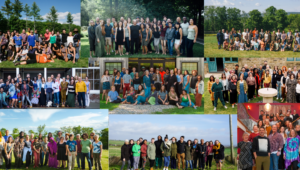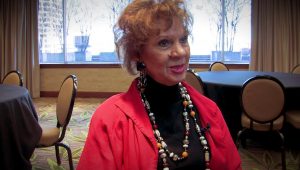This week, we’re sharing reflections on the Summit at Sundance process and on the ideas leaders in the Chief Executive Program: Community and Culture worked on during this Summit last month. We encourage you to add your voice, questions and experiences to the conversation, and to use the information and conversations to inform action!
How might we ensure the arts are a convener and participant in identifying and addressing important community issues and in community planning?
When we asked Chief Executive Program: Community and Culture leaders what they saw as the most pressing issues in their field, many told us that they’d like to address the siloization of arts in communities. The problem, as they described, is that the arts often operate in isolation from other critical issues such as social justice, equitable development and wellness. This is to our own detriment, as it limits the ways in which our supporters see our value. More importantly, this is detrimental to our communities, which aren’t benefiting from the powerful resources arts and culture can bring to bear on these critical issues.
In discussing the issue, leaders talked about place and process as two important resources we can share with our communities. Place, meaning the physical space we take up, can be offered over to the community to use as a home-base for important conversations and convenings. Process, referring to the creative process artists can offer in community planning and decision-making.
One of the most direct calls to action that came out of these conversations was for leaders to stop complaining about not being offered a seat at the table and to go out and reserve one for yourself. Show up at community meetings. Vote. Run for office. Allow staff time to be involved in community groups (that aren’t necessarily arts-related!).
We’re not the first group to have this conversation, and the leaders certainly acknowledged national efforts to build cross-sector partnerships. The Chief Executive Program: Community and Culture group is interested in pushing these conversations forward into action. Specifically, we talked about creating an international network of cultural practitioners addressing community issues. There’s power in the experience of sharing that would happen in this network, but also in the tools and resources it could produce. Think about a “dictionary” that outlines urban planning language to artists and vice versa. How might these actions impact the work that you do?


